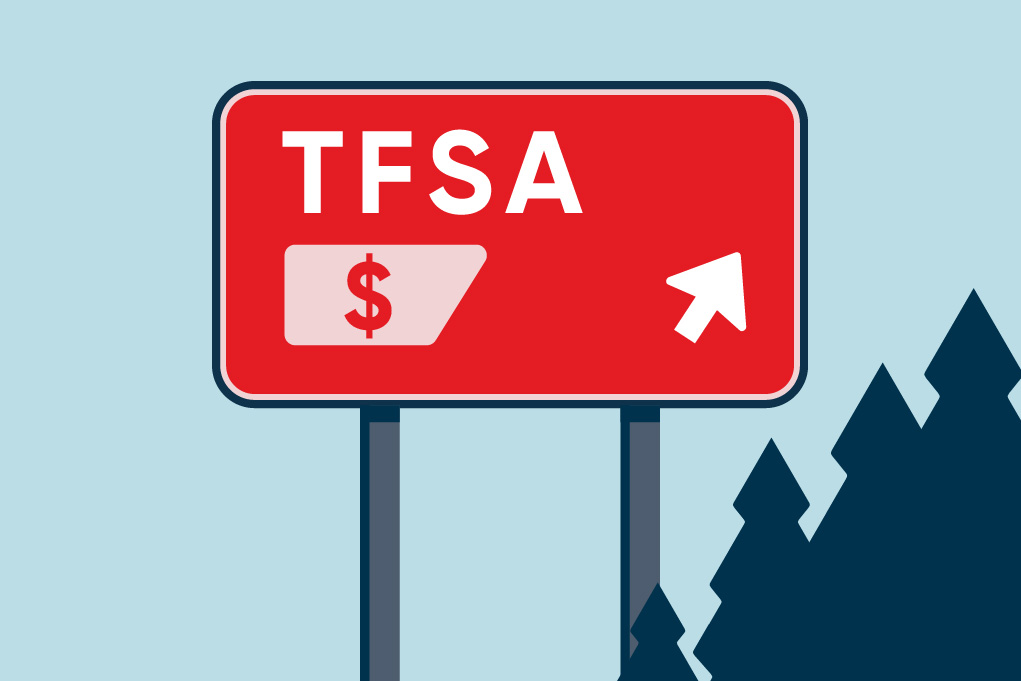1. What’s a TFSA?
A TFSA is a government-registered account that allows you to grow your savings tax-free. To open one, you need to reside in Canada, be over 18 years of age and have a valid social insurance number.
2. What’s the maximum amount you can contribute to your TFSA?
The TFSA contribution limit is adjusted annually to reflect the current cost of living. To find out how much you can contribute, check this year’s maximum contribution.
3. What’s the penalty if you exceed the contribution limit?
If you contribute too much to your TFSA, you’ll have to pay tax on 1% of that amount, multiplied by the number of months it was in your account during that calendar year. The next contribution period begins in January, at which time your contribution room will be renewed.
For example, if you over-contributed $1,000 to your TFSA in December, you’ll have to pay a penalty of $10 for that month’s over-contribution. In January, the $1,000 will be deducted from your contribution room for the new year and will no longer be considered excess.
4. What happens to your unused contribution room?
The TFSA program has been around since 2009. Your unused contribution room is accumulated from the year it was created or the year you turn 18. If you’ve never contributed to a TFSA, you can deposit this cumulative amount in a single year, even if it exceeds the maximum contribution. Visit the Canada Revenue Agency website to see the contribution limits over the years.
5. How can you contribute to your TFSA?
In addition to depositing money directly into your TFSA, you can also use strategies such as:
- Guaranteed Investment Certificates (GICs)
- Self-directed investments
- Managed solutions and investment funds
- Cash Advantage Solution
Thanks to your TFSA, your investments will grow tax-free.
6. Can you withdraw money from your TFSA and then put it back?
In contrast to RRSPs, the amounts you withdraw from your TFSA aren’t considered income and therefore aren’t subject to tax. When you make withdrawals from your TFSA, the equivalent amount is added to your contribution room for the following year.
For example, if you withdraw $5,000 from your TFSA to finance renovations, this amount will be added to your unused contribution room the following year.
7. Should you use your TFSA for short-term savings or retirement?
Your TFSA can be used for both. Its main advantage, however, are the compound returns, i.e., the interest that accumulates over time and grows tax-free.
8. Which is the best savings account for retirement, a TFSA or an RRSP?
According to experts, the RRSP remains the best retirement savings vehicle for most people.
However, if you have a low income because you’re studying or working part time, you should opt for a TFSA.
RRSPs and TFSAs should be seen as two complementary savings vehicles.
9. What is a “successor holder” on TFSA application forms?
A successor holder is the person to whom your TFSA will be transferred in the event of your death. This person can only be your spouse or common-law partner – even if you’re single, you can’t name someone else. They can keep your TFSA as well as their own, or transfer the value of one to the other, without affecting their contribution room.
Depending on the province you live in, you can also name a beneficiary for your TFSA. Upon your death, the funds in your TFSA will be paid to that person. However, this process is more complex than simply changing the holder.
10. Can you open a joint TFSA?
No, you can only open an individual account.
If your spouse doesn’t work or can’t afford to contribute to a TFSA, you could consider transferring funds to them for this purpose. This strategy would double your household’s contribution room and allow your savings to grow tax-free.
For more tips and advice on how to better manage your personal finances, sign up for the National Bank newsletter.
